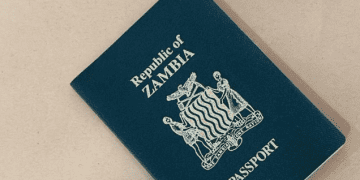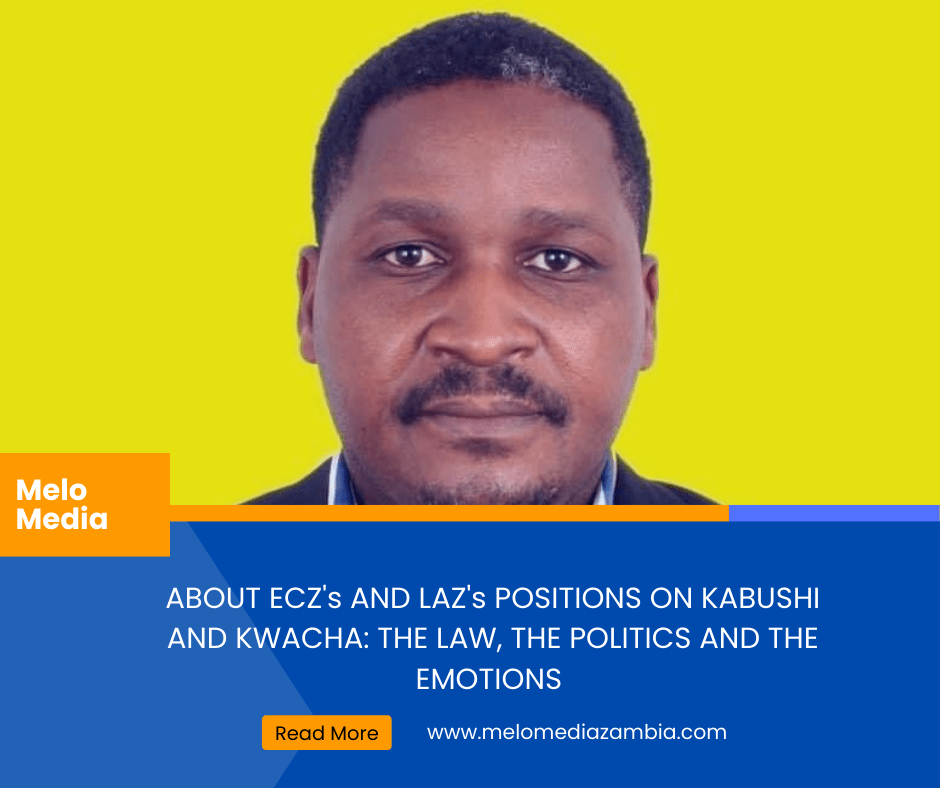By Sean Tembo – PeP President
- Tomorrow, the 25th of August 2022 is the date for filing in of nominations for the Kabushi and Kwacha parliamentary by-elections. These by-elections were brought about by the decision of the High Court to nullify the election of Hon. Lusambo and Hon. Malanji as Members of Parliament respectively. These two decisions of the High Court were subsequently upheld by the Constitutional Court upon appeal.
- Late this afternoon, the Electoral Commission of Zambia (ECZ) released a bombshell. They announced that both Hon. Lusambo and Hon. Malanji will not be allowed to file in their nominations tomorrow. According to ECZ, their position is informed by article 72(4) of the Republican Constitution. About an hour after the ECZ had published their letter on their Facebook page, the Law Association of Zambia (LAZ) President issued a statement to the effect that both Hon. Lusambo and Hon. Malanji are eligible to file in their nominations tomorrow because the Constitutional Court did not disqualify them, but merely nullified their election as MPs for Kabushi and Kwacha respectively. The question is; which is which? Is ECZ right or is LAZ right?
- In coming up with their position on this matter, ECZ quoted article 72(4) of the Constitution. So perhaps it would be a good idea to check what this article provides. Article 72(4) states: a person who causes a vacancy in the National Assembly due to reasons specified under clause 72(2)(a), (b), (c), (d), (g) and (h) shall not, during the term of that Parliament;
(a) be eligible to contest an election; or
(b) hold public office.
However, in order to give meaning to article 72 (4) of the Constitution, it is necessary to understand what article 72 (2) provides since it is refered to above. In this regard, article 72 (2) states; the office of Member of Parliament becomes vacant if the Member;
(a) resigns by notice in writing to the Speaker;
(b) becomes disqualified for election in accordance with article 70;
(c) acts contrary to a prescribed code of conduct;
(d) resigns from the political party which sponsored the member to the National Assembly;
(e) is expelled from the political party which sponsored him to the National Assembly;
(f) ceases to be a citizen;
(g) having been elected to the National Assembly as an independent candidate, joins a political party;
(h) is disqualified as a result of a decision of the Constitutional Court; or
(i) dies.
- On the other hand, LAZ arrived at its position that Hon. Lusambo and Hon. Malanji are eligible to contest the by-election on the basis that the Constitutional Court only nullified the elections in question but did not disqualify the two MPs from re-contesting their seats. LAZ further argued that in cases where the Constitutional Court only nullifies an election but does not disqualify the incumbent from re-contesting, then the incumbent is free to re-contest. So which is which here?
- In order to arrive at the correct legal position regarding the matter at hand, it is necessary to go back to article 72(2). Here, let us start by outlining the points which are not in contention. It is common cause that both the Kabushi and Kwacha seats have become vacant, not so? I mean, if the two seats had not become vacant, then we wouldn’t be talking about by-elections, would we? So l guess we are agreeable that the two seats are vacant. Since the two seats are vacant, the next natural but important question is how did they become vacant? The same article 72 (2) is instructive on how a parliamentary seat could become vacant. As a matter of fact, article 72(2) only provides nine ways in which a parliamentary seat can become vacant. These are listed from articles 72(2)(a) to article 72(2)(i).
- From here, we can go through each of the possible nine ways in which a parliamentary seat can become vacant, and ask ourselves if indeed that is how the Kabushi and Kwacha seats became vacant? Let us start with 72(2)(a), did Malanji or Lusambo resign by notice in writing to the Speaker? The answer is NO. Let us go to article 72(2)(b), did Malanji or Lusambo become disqualified by reason of article 70? The answer is NO. Let us go to article 72 (2)(c), did Malanji or Lusambo act contrary to the prescribed code of conduct? The answer is NO.
- In fact, let us not waste time going through each of the nine ways in which a parliamentary seat can become vacant. Let us just go straight to the three provisions which are excluded by article 72 (4) as a basis for preventing a person from standing for election. For ease of reference, let us paraphrase article 72 (4) here. Article 72(4) states: a person who causes a vacancy in the National Assembly due to reasons specified under clause 72(2)(a), (b), (c), (d), (g) and (h) shall not, during the term of that Parliament;
(a) be eligible to contest an election; or
(b) hold public office.
We can see from the above that only 72(2)(a), (b), (c), (d), (g) and (h) are listed as the basis for barring someone from re-contesting their seats. On the other hand, (e), (f) and (I) are not included. In other words, if the vacancy was caused by 72(2)(e) i.e. if Malanji or Lusambo lost their seats due to being expelled from the PF, then they would be eligible to re-contest. Similarly, if Malanji or Lusambo lost their seats because they ceased to be citizens of Zambia, then they would be eligible to re-contest, except of course they would not meat the requirements of article 70, which requires one to be a Zambian citizen in order to contest as a parliamentary candidate. Similarly if Malanji and Lusambo had lost their seats by operation of article 72 (2)(i) i.e. if they had died, then according to the law, they would be eligible to re-contest their seats. Except of course they would not be available.
- The bottom line here is that both Malanji and Lusambo do not fall within the three exceptions that are provided by article 72(4) in which a person who caused a parliamentary vacancy can re-contest their seat. Having established that fact, anything else does not matter. Meaning that the argument by LAZ that neither Malanji nor Lusambo were specifically disqualified by the Court, does not carry water. It simply does not matter. What matters is that neither Malanji nor Lusambo falls under the three exceptions provided by article 72(4). However, in their statement, LAZ was right on one issue; that the Constitutional Court had created a lacuna by failing to use the exact wording of article 72 (2) in issuing it’s judgement. Instead of saying that the Kabushi and Kwacha seats had been nullified, the Court should have said Lusambo and Malanji had been disqualified. The word “nullification” is not in the Constitution as far as parliamentary seats are concerned. Only the word “disqualification” is present. In this particular case however, it is evident that the two words are being used synonymously. Therefore, in this instance, ECZ is on firm ground and LAZ is misdirected.








































